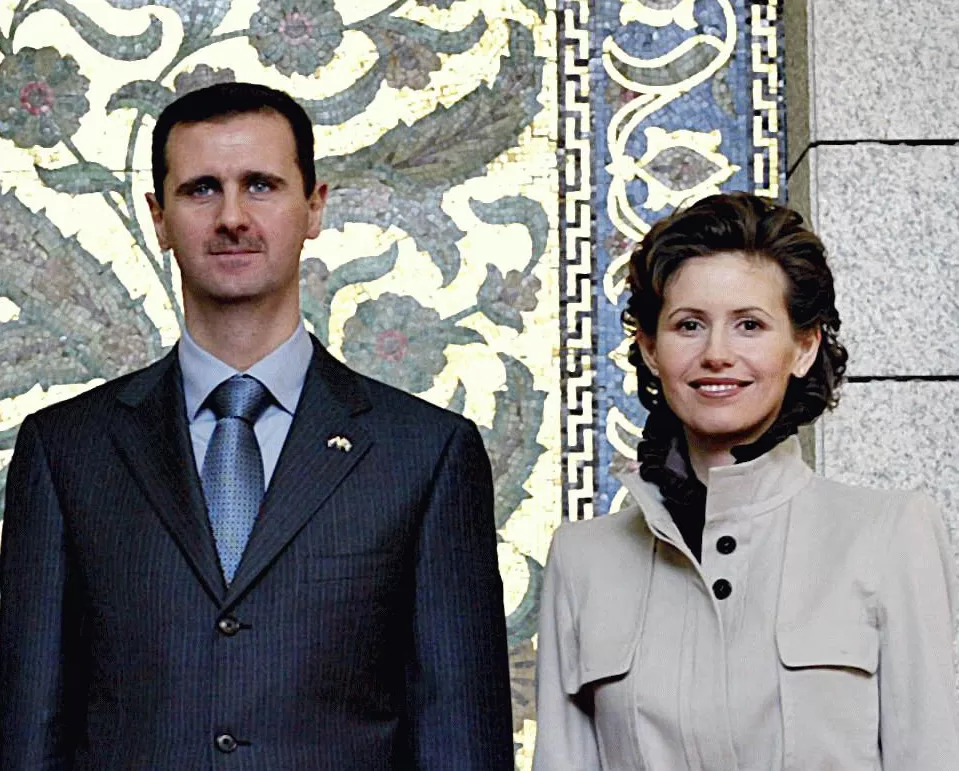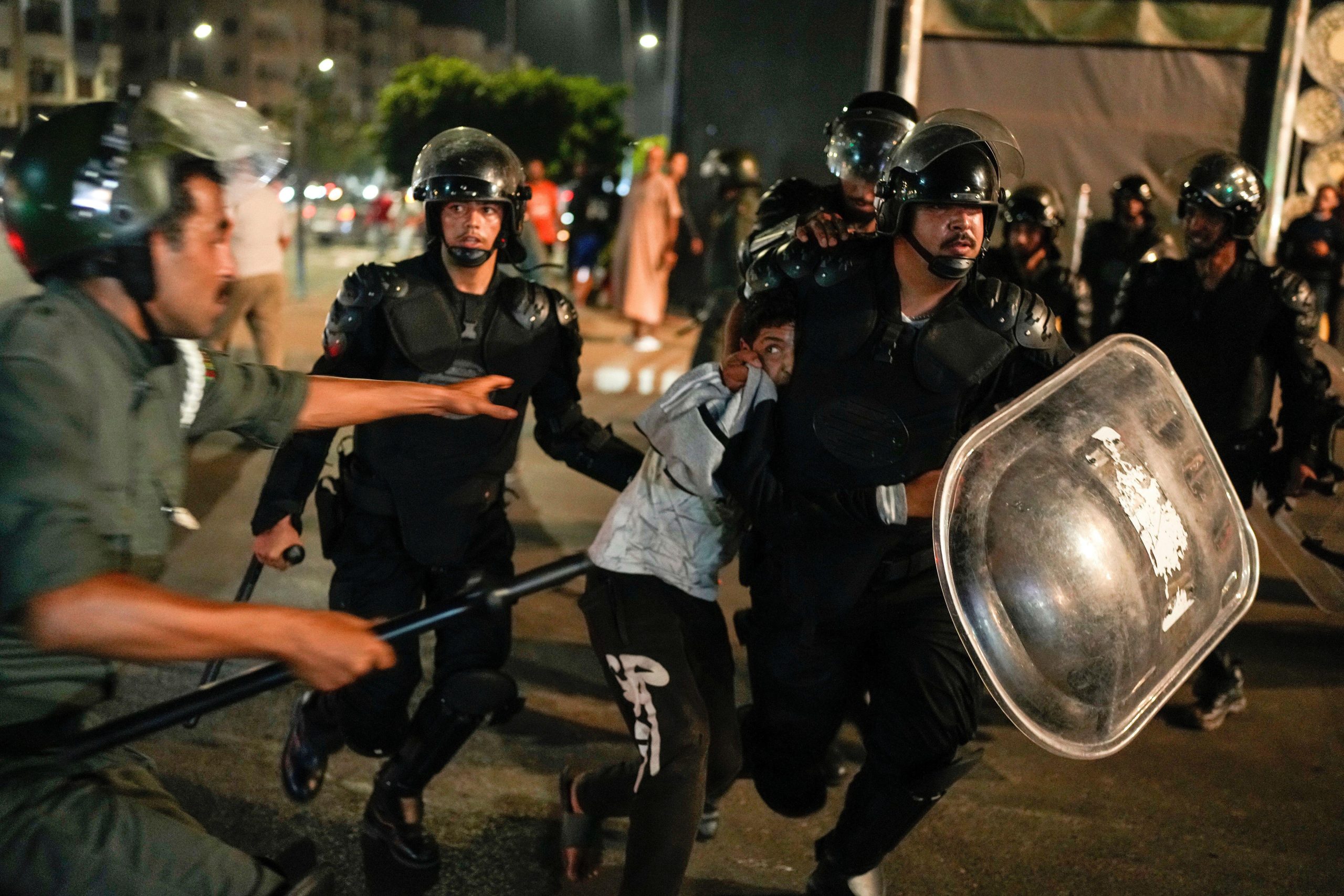On a summer evening in June 2000, the Syrian official television channel interrupted its regular broadcast and announced the death of the country’s then President Hafez al-Assad.
The screen turned black, declaring a 40-day official mourning period, during which television viewers were subjected to programmes about the accomplishments and heroism of the deceased president.
News was all but suppressed for weeks. Added to that, it later became clear that the president had been dead for some time before it was even reported on TV.
Mohamad Mansour, editor-in-chief of the al Arabi al Qadeem website and a former employee of Syrian television said: “We must remember the state of confusion and caution that prevailed at that time. Media workers hesitated until they received orders to announce the death; I even remember one department head at the television channel presenting a film about animals, leading to his dismissal as the authorities considered it an insult to Assad.”
Delaying the announcement of disasters, misfortunes, and deaths had been the standard approach by the Syrian regime for decades, but when Assad’s son Bashar replaced his father that changed: the rapid dissemination of news, even about people in government inner circles, became the norm.
And now, it’s changing again. Controlling when and how news is released is increasingly becoming the norm and some are suggesting this is an ominous sign of growing Russian influence in state affairs.
The latest sign of this was when the president’s closest adviser, Mrs Luna Al-Shibil, was involved in a car accident. She died from her injuries a few days later. While the Syrian independent media waited only a few hours to announce the accident involving Al-Shibil, it was days later before her death was officially confirmed by the government.
Journalist and activist Mostafa Al-Nuaimi believes that the Syrian regime today is resorting to a policy of denial just as it did in the past.
He told Index, “With the presence of social media and the presence of international intersections and multiple decision-making circles within its state, it sometimes has to disclose information that does not align with the mentality with which it governs the country. ”
Al-Nuaimi, who has closely followed the Arab Spring revolutions, believes that this all heralds a new phase of “eliminations” within the regime’s institutions is coming, driven by foreign influence.
He said the regime’s tactics in dealing with these eliminations will not change. “This is through denial in the first phase, followed by disseminating information through parallel media outlets, and then the official announcement through official media outlets. This is what happened with Luna Al-Shibil.”
As rumours circulate about the cause of Al-Shibil’s death, Al-Nuaimi says there were “claims she was sending information about the issue of the Iranian militias in Syria and its implications on the Syrian regime, and based on that, she was removed and completely dismissed.”
Syrian journalist Ahmad Primo, director of the Verify fact-checking platform, said, “I do not want to delve into the cause of death or illness because that is a separate discussion, especially since the regime has a long history in this regard.”
Primo did not notice any particular delay in announcing her death, regardless of its causes.
Primo said, “the announcement was quick, even if indirect, through the Presidency’s account on X.” However, no such announcement was made on official state television.
Announcements about the health of the President’s wife Asma also seem to have changed, perhaps to take the focus away from the eliminations. London-born Asma was diagnosed with leukaemia in May this year, following a successful recovery from breast cancer discovered in 2018.
Primo said, “The regime’s media machinery has taken a direct announcement approach since the start of military intervention [in Ukraine], especially given Russia’s involvement in all [Syrian] state details”.
He added: “I will not delve into the topic of conspiracy but I believe the regime seeks to gain credibility for what it publishes by pre-empting other media outlets.”
There is also the matter of the news that is never announced. Primo says that there is a lot of news about senior figures that is not officially announced but only becomes known to the media through leaks.
After nine years of Russian military intervention in Syria, observers believe that President Putin has achieved a large part of his goals. He has an effective strategic and military presence on the shores of the Mediterranean (huge Russian military bases have been built there), and President Bashar al-Assad has become a supporter of his war in Ukraine even if that support is only in the media.
In a recent television interview, the Syrian president expressed his confidence that Russia would “emerge victorious” from the conflict in Ukraine and would once again “unite the two brotherly peoples”.
Egyptian journalist Hossam Al-Wakeel, editor-in-chief of fact-checking website Tafnied, said: “The official discourse is a fundamental means by which governments deliver information and form perceptions and concepts among the public and the different parties associated with the state.”
He added: “The official discourse must be responsible and transparent, but reality often does not align with this for many governments.”
He continued: “In the Syrian case…this pattern, if it has changed, should be linked to the political process managed by the regime at present, and the evolving nature of its relations and negotiations with the international community and with Russia.”
The delay or otherwise in making announcements by the regime is about political management and appeasing allies.
“There are potential gains [to be had] from accelerating the announcement of crises or disasters,” says Al-Wakeel, who says that Bashar al-Assad will be considering the internal situation as well as changes in the level of international engagement with the Syrian issue in light of the war in Ukraine and the war in Palestine to explore how best to take advantage.
As Russia consolidates its military grip on the country, its grip on the media appears to be tightening too.






